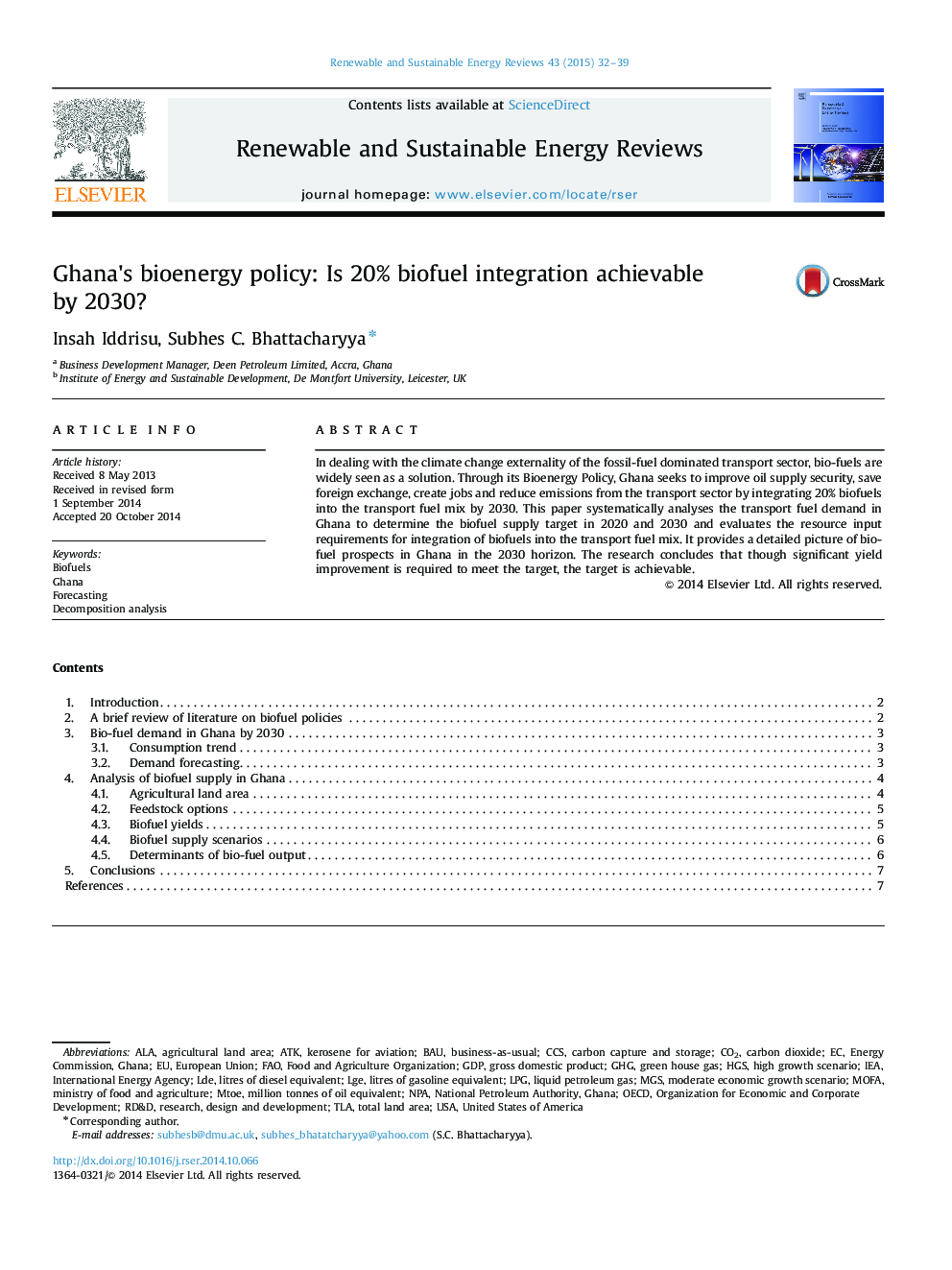| Article ID | Journal | Published Year | Pages | File Type |
|---|---|---|---|---|
| 8117385 | Renewable and Sustainable Energy Reviews | 2015 | 8 Pages |
Abstract
In dealing with the climate change externality of the fossil-fuel dominated transport sector, bio-fuels are widely seen as a solution. Through its Bioenergy Policy, Ghana seeks to improve oil supply security, save foreign exchange, create jobs and reduce emissions from the transport sector by integrating 20% biofuels into the transport fuel mix by 2030. This paper systematically analyses the transport fuel demand in Ghana to determine the biofuel supply target in 2020 and 2030 and evaluates the resource input requirements for integration of biofuels into the transport fuel mix. It provides a detailed picture of bio-fuel prospects in Ghana in the 2030 horizon. The research concludes that though significant yield improvement is required to meet the target, the target is achievable.
Keywords
ALARD&DMtoeTLALDEHGSMGSATKLGEOECDIEAGHGCCSLPGNPABaUInternational energy agencyEuropean UnionUnited States of AmericaUSADecomposition analysisGross domestic productGDPCarbon capture and storageCarbon dioxideFood and Agriculture OrganizationBiofuelsGhanaFAOMillion tonnes of oil equivalentForecastingBusiness-As-UsualCO2Liquid petroleum gasGreen house gas
Related Topics
Physical Sciences and Engineering
Energy
Renewable Energy, Sustainability and the Environment
Authors
Insah Iddrisu, Subhes C. Bhattacharyya,
